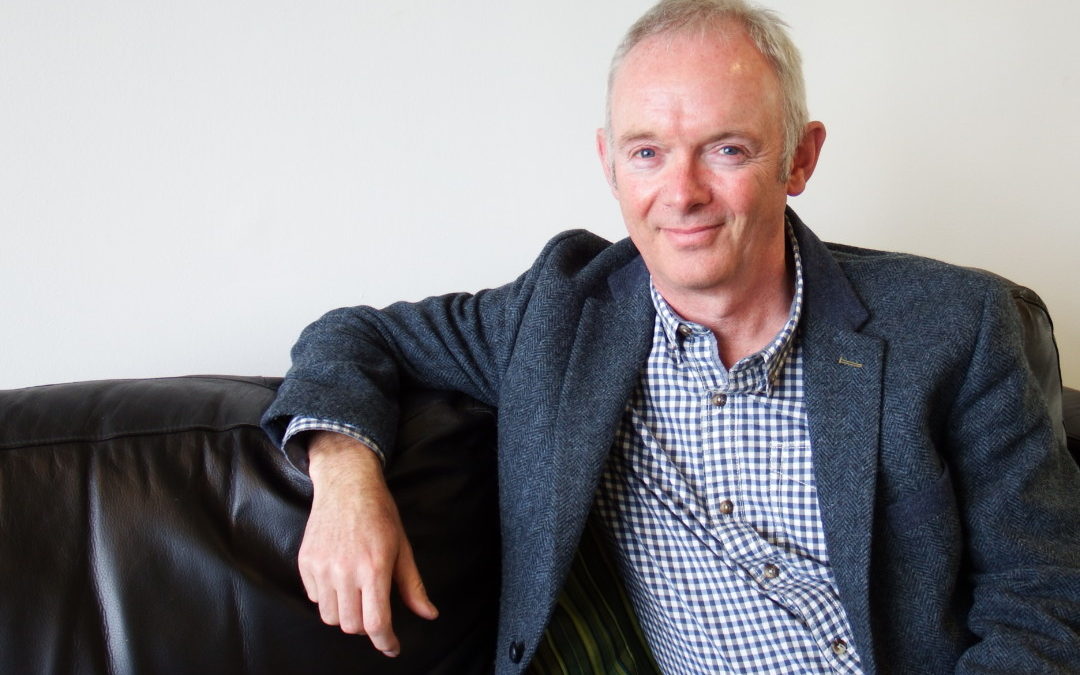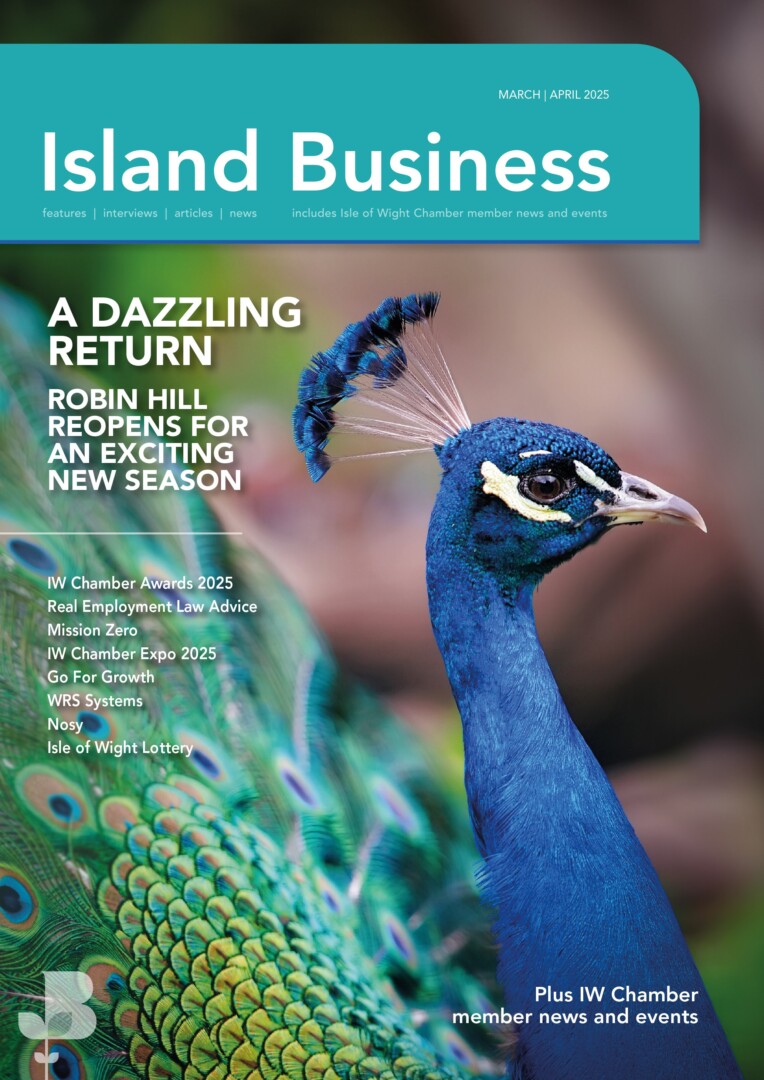IFPL is a multi-award winning international design and manufacturing company specialising in tailored engineering solutions for the global passenger entertainment sector. Managing Director Geoff Underwood has been in the industry for nearly 25 years, learning his trade as an apprentice at Plessey Radar. He set up In Flight Peripherals in his garage back in 1997 and today his company employs just under 50 people, based in Calbourne. Geoff is Vice President of the Isle Of Wight Chamber Of Commerce. Tom Stroud hears his story.
How’s business at IFPL?
It’s all going well. We’ve been growing organically every year since 2006 when we got our first contract for the Boeing 787 aircraft. We employ almost 50 people, which is more than last year and our turnover is pretty healthy too.
To what extent do you see yourself as an Island business? You’re based here but your customers aren’t – they’re all over the world.
I don’t want to move off the Island if I can help it and being based here works really well. It’s a reflection of the modern world. Back in 1997 all I really needed was a telephone and access to email. I used to start work at 4pm, when America woke up, and I’d finish at 2am, drinking lots of coffee in between. We still run the business in a similar way today, via email remotely, and the bulk of our business is still in the States. We do have a team who go out there every month, in addition to two reps who are based in California. We are doing more work with Japan too. Historically we would start late and finish late, but now the Japanese want us to start early too! Our customers buy from businesses that are based all over the globe. Israel is a big player in the market, Germany, France, the UK, New Zealand and Australia – it’s a global industry. We’ve got one competitor in the whole world and they’re based in New Zealand.
Business is good and you’ve won a plethora of awards. What do you put your success down to?
This industry is about quality and reliability. It’s not as cost driven as the consumer world and the whole reason we became successful is because we came up with a more reliable product. Our headphone sockets were more robust. In 1999 we were building jacks that were going to Virgin Atlantic and the work was actually going on in my garage, with my son, my mum and my dad. The image I was projecting was one of “super professional” and I did that by getting good marketing collateral that probably made us out to be bigger than we were at the time. We’ve been very good at quality products, delivered on time. We’re shipping upwards of 250,000 units a year now.
You need a good idea, good engineering and good relationships. Our industry is also all about patience. In a consumer led environment you would launch a product, you market it and within six months it’s either selling or it isn’t. For us, we come up with an idea, take it to market, and then once the customer wants it we’re lucky if we can even get a purchase order within 2 years. You have to be working ahead of the curve. We finally won a contract with British Airways in 2006, after first talking to them in 1999. It’s that kind of gestation period and it’s not for the quick-buck merchants. It’s about working hard on relationships, gaining trust. I’ve gone to companies like Panasonic and Talus and convinced their CEOs that I can do a better job than their own teams. That’s the challenge for us because all of our customers make the same things that we make.
Is being based on the Island ever a barrier to business?
If I’m absolutely honest it would make more sense for us to be based on the west coast of the US. If it ever became a barrier being here then we’d have to reconsider but it isn’t. Our big barrier is recruitment, which is a national problem but it’s even worse on the Island. There’s a psychological barrier in persuading people to cross that stretch of water. It’s a really big issue and we need to figure out how we break that barrier down. That’s a big challenge. We are lucky that we have an amazing pool of technology companies on the Island but invariably it means you’re poaching from each other. The bottom line is that you do need to recruit from the mainland. When you’re trying to recruit somebody with a decent level of experience and skill, their partner also needs to relocate and so you’re looking for jobs for two people, not just one. Retention is less of an issue. Once they’re here they usually stay, but we’re now focused on trying to develop skills from within. We’ve had three apprentices recently and they’ve proved to be very useful.
As the MD of a rapidly growing business you must be constantly having to adapt to a changing company. How do you deal with that?
I’m continually learning and I’m completely self-taught in business. I’ve made plenty of mistakes along the way but hopefully they haven’t been catastrophic!
The issue now is keeping up with demand and we’ve become a victim of our own success. When things go wrong, it’s in a big way now. Back then, if I shipped a thousand units that was my level of risk. Now we’re up to 250,000 units a year so we have to worry about warranties and cash reserves – things like that. We’re on the verge of employing 50 people, which is the point at which you have to step up. It’s not a company that I can completely control any more because there’s too much going on, and I’m happy with that.
You chair a group of Island-based technology companies that includes GKN, BAE, Parlex and Vestas. The Isle of Wight is often described as having a “tourist economy” but there’s also a bigger picture isn’t there?
We have this massive history of technological achievements on the Island and there are lots of great manufacturing companies based here. There’s a hell of a lot going on and combined with a great lifestyle there’s a big sell there. I think it’s highly unlikely that you can attract a big company to come here these days, but what you can do is encourage individuals to do what I’ve done, which is set up a business from home that will grow in time. They can conduct their business here as well as anywhere else in the UK and we need to sell the Island like that.
Last year you picked up the Queen’s Award for Industry for the second time. What does that mean for IFPL as a business?
It’s really good for our customers to see that. It gives them faith and trust that we are a serious company and worth taking notice of. There’s a lot of kudos attached and it’s particularly appreciated by our American customers. People jokingly refer to me as “friend of the Queen”, which is quite a giggle. For the folks who work at IFPL it makes them proud of the company and their achievements and that’s what it’s all about as far as I’m concerned. It’s about building pride in the business.
First published in the April 2015 issue of Island Business magazine.



